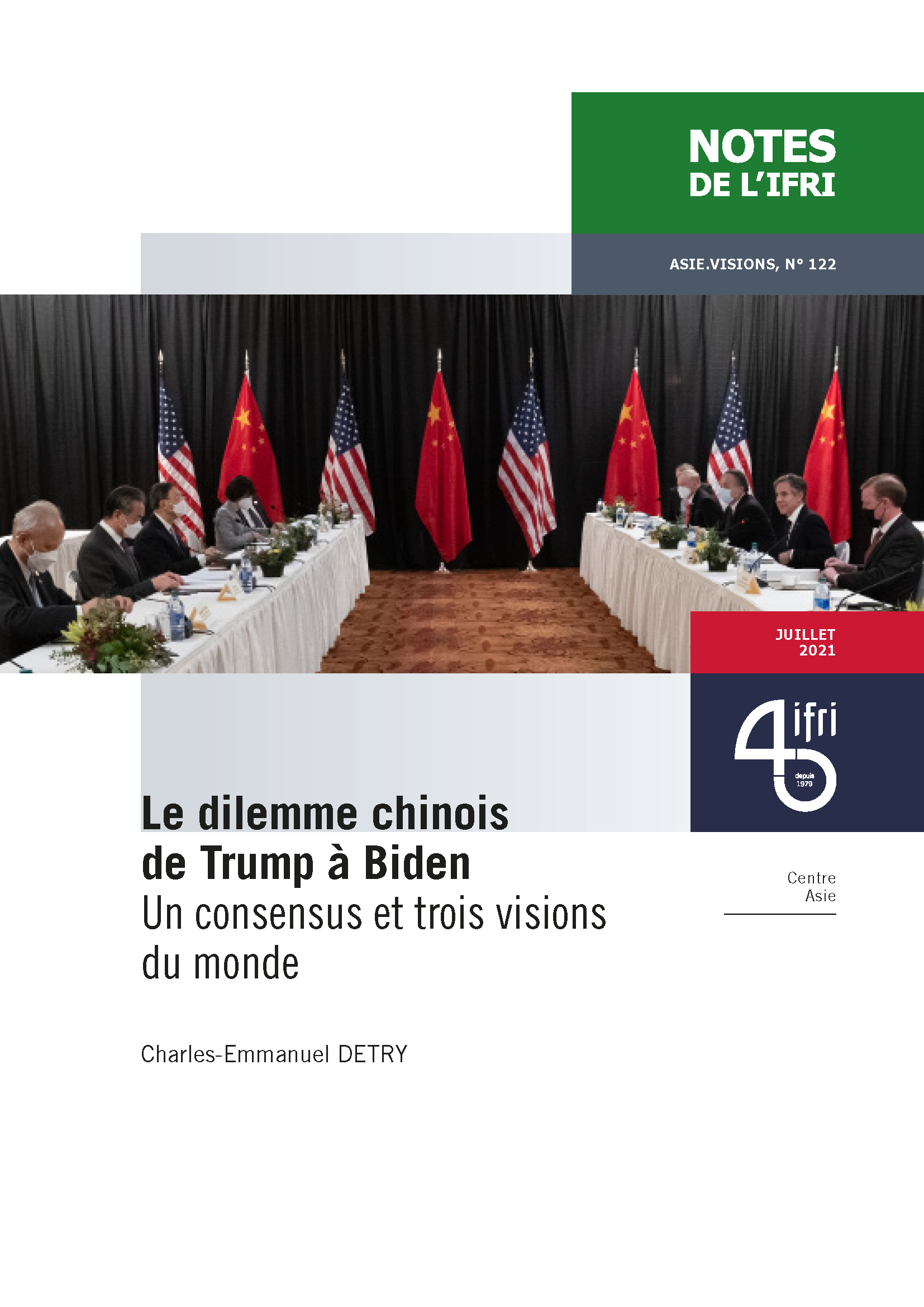The China dilemma from Trump to Biden: one consensus and three worldviews

The United States underwent a fundamental transformation in its stance on China during the Trump presidency.
This shift is perceived as the expression in Washington of a new consensus on the failure of 40 years of engagement. The policy stands accused of having enabled the rise of an alarmingly powerful China, without rendering it any less dictatorial than in the past. As a result, Sino-American antagonism is deemed inevitable and stands as a given for the new Biden administration.
Yet, this seemingly unanimous diagnosis (China is the enemy) does not lead to an agreement on the policy to be implemented (how should this enemy be dealt with?). An assessment of the past four years reveals hesitations that can not be solely attributed to the former president’s idiosyncrasies. As argued below, this indecisiveness is the product of three conflicting tendencies that differ in how they project the kind of international order in which the United States and China may coexist.
According to the first initiatives of Joe Biden’s new team, the introduction of a narrative of struggle between democracies and autocracies and the persistent need for cooperation place the Democrats in front of the same dilemma as their predecessors’.
The full text of this paper is only available in French: https://www.ifri.org/fr/publications/notes-de-lifri/asie-visions/dilemme-chinois-de-trump-biden-un-consensus-trois-visions
Related centers and programs
Discover our other research centers and programsFind out more
Discover all our analyses
China’s Strategy Toward Pacific Island countries: Countering Taiwan and Western Influence
Over the past decade, China has deployed a diplomatic strategy toward the Pacific Island Countries (PICs). This strategy pursues two main objectives: countering Taiwan's diplomatic influence in the region and countering the influence of liberal democracies in what Beijing refers to as the "Global South."

Opening up the G7 to South Korea to Address Contemporary Global Challenges
The G7’s global influence has diminished as powers like China reshape international governance through initiatives such as BRICS and the Shanghai Cooperation Organisation (SCO). With the G7 now representing just 10 per cent of the world’s population and 28 per cent of global GDP, its relevance is increasingly questioned.
Expanding SPDMM as a pivotal institution in the Pacific – A French perspective
The South Pacific Defence Ministers’ Meeting (SPDMM) is the only forum that brings together defense ministers from the wider South Pacific — including Chile, which is hosting it for the first time. This heterogeneous group of countries with varying resources, capacities, and interests — Australia, Chile, Fiji, France, New Zealand, Papua New Guinea (PNG), and Tonga — are united by their shared determination to strengthen cooperation on maritime security and humanitarian assistance and disaster relief (HADR) activities.
EU’s Derisking From China: A Daunting Task
With economic security as a major concern, the EU has recently turned to “derisking” from China. The EU strategy entails reducing critical dependencies and vulnerabilities, including in EU supply chains, and diversifying where necessary, while recognizing the importance and need to maintain open channels of communication.










